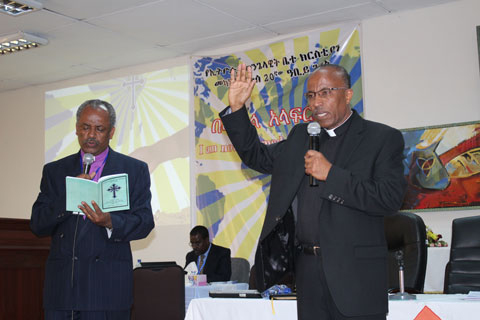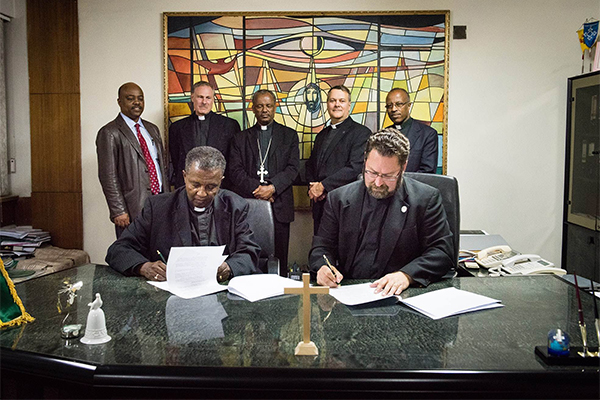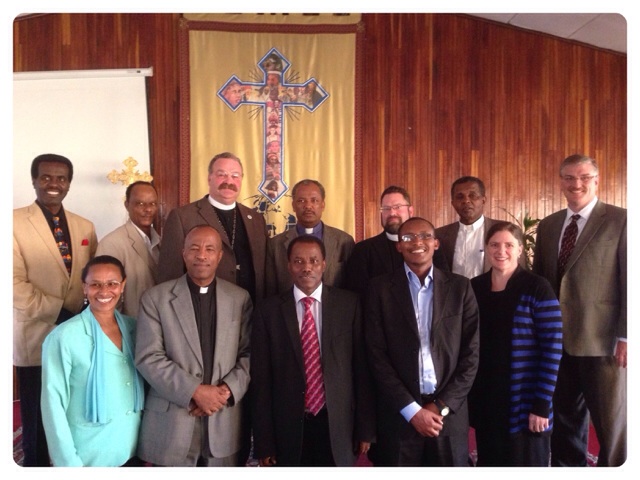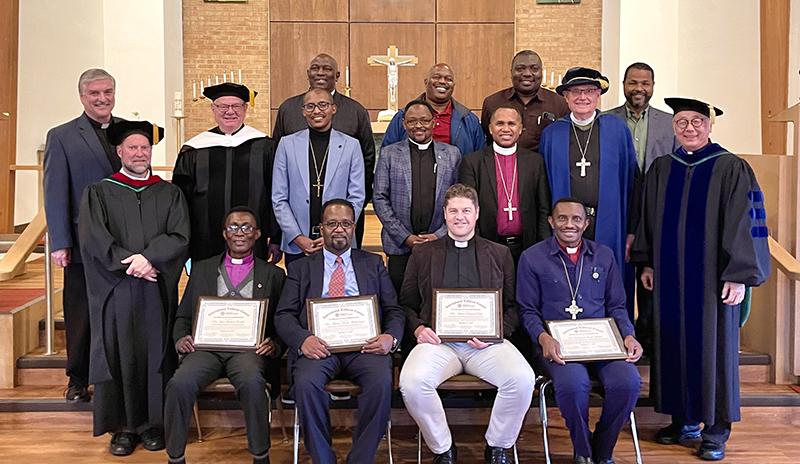
USA – The Lutheran Leadership Development Program (LLDP) celebrated its first commencement ceremony following its most recent session November 8–19, 2022 in Troy, Illinois. The ceremony took place November 17 at St. Paul’s Lutheran Church in Troy.
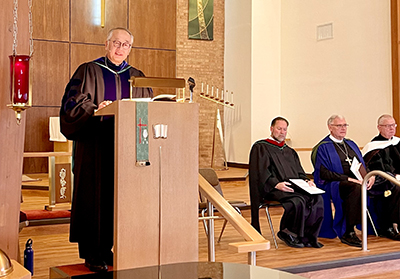
“It is a great joy to recognize the accomplishment of the first graduates of the Lutheran Leadership Development Program,” said Rev. Dr. Naomichi Masaki, LLDP Director. “I commend them for their achievement of this Certificate of Theology in Lutheran Leadership, because, despite their demanding ministry context as church leaders back home, they have been diligent in their studies and have accomplished the goals for which the program was created. I pray the Lord of the church to continue to bless them as He uses the confessional Lutheran theology and practical skills that they have acquired in the LLDP in the service of ecclesial leadership in their home church bodies.”
Four graduates were awarded the Certificate of Theology in Lutheran Leadership on behalf of the International Lutheran Council (ILC). In addition to completing coursework on church leadership in various areas, each also wrote a graduation thesis as a culminating exercise. Each was provided a thesis advisor from the LLDP teaching faculty. Their theses were approved by the advisor as well as Dr. Masaki who served as a reader for all four theses. The graduates include:
- President/Bishop John Donkoh (Evangelical Lutheran Church of Ghana – ELCG) – Thesis: “Why are Some Hermeneutical Approaches Problematic, Even When Using the Bible?: A Consideration of the Proper Principles of Biblical Interpretation.” (Advisor: Rev. Dr. Charles Gieschen, Provost of CTSFW)
- Bishop Emmanuel Makala (South East of Lake Victoria Diocese, Evangelical Lutheran Church in Tanzania – SELVD-ELCT) – Thesis: “The Dodoma Statement: An Evaluation of the Position Statement of the Evangelical Lutheran Church in Tanzania Regarding Same-Sex Marriage.” (Advisor: Rev. Dr. Albert B. Collver III, former ILC General Secretary)
- Deputy Bishop Helmut Paul (Free Evangelical Lutheran Synod in South Africa – FELSISA) – Thesis: “According to our Lutheran Confessions, Is Confession and Absolution—be it in a Corporate Service or Private Confession with the Pastor—a Prerequisite for Receiving the Lord’s Supper?” (Advisor: Rev. Prof. John T. Pless, CTSFW).
- General Secretary Teshome Amenu (Ethiopian Evangelical Church Mekane Yesus – EECMY)– Thesis: “An Analysis of the 1969 Agreement on the Integration Policy between the Mission Partners and the EECMY in the Light of Augsburg Confession, Article VII.” (Advisor: Rev. Dr. Albert B. Collver III, former ILC General Secretary)
Participant Response
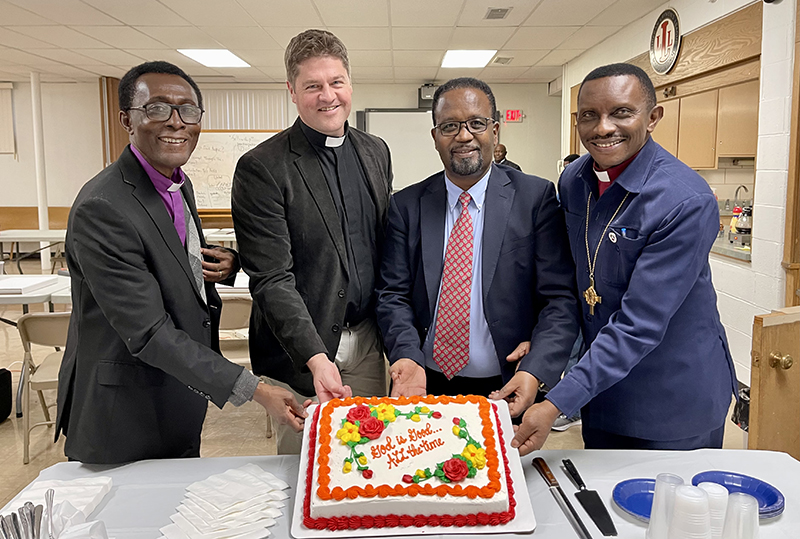
The graduates praised the knowledge and skills they had learned as a result of the program. “I’m privileged to be among the first batch of students who successfully completed the LLDP,” noted President/Bishop John Donkoh of the Evangelical Lutheran Church of Ghana. “This program has been an eye opener for me in many ways. Lutheran churches around the world, particularly in Africa, need assistance in leadership and theological education, particularly in leadership development for current and future leaders in the areas of Lutheran identity and confessions.”
“It is my prayer and hope that this program will continue and that more church leaders on the continent would have such opportunities to acquire leadership training,” said President Donkoh, who was also elected in 2022 to serve as secretary of the International Lutheran Council.
Deputy Bishop Helmut Paul of the Free Evangelical Lutheran Synod in South Africa said that the LLDP provided him time to reflect on concrete problems and challenges in his home church. “It was of an immense value to have had opportunities to discuss and collaborate with professors and esteemed colleagues about their solutions,” he noted.
Bishop Emmanuel Makala of the Evangelical Lutheran Church in Tanzania’s South East of Lake Victoria Diocese reflected that the LLDP was “an overwhelming experience.” “The quality and contents of the program were deep and practical,” he explained. “It exceeded my expectation. I enjoyed everything—except for cold weather, frequent cancellation of flights and jet lags, and deadline pressure for assignments!”
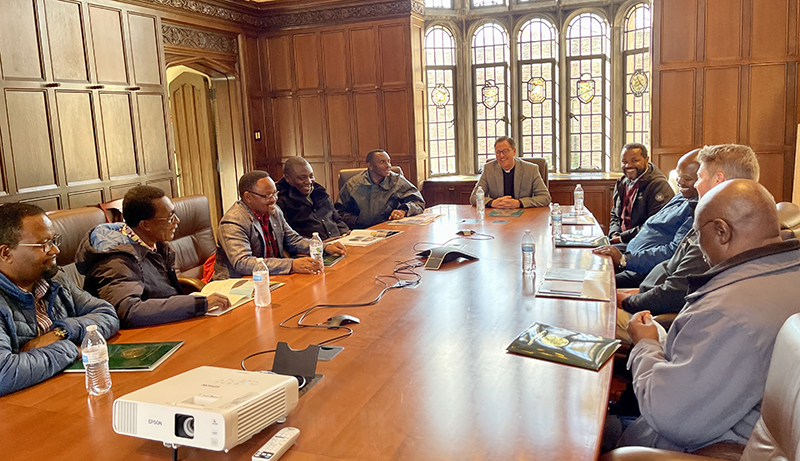
General Secretary Teshome Amenu of the Ethiopian Evangelical Church Mekane Yesus concurred with his colleagues on the benefits of the LLDP. He also remarked that another big benefit of the program was the connections made with leadership of other Lutheran church bodies. “Getting to know them and becoming friends can never happen by meetings,” he said. “We are not isolated. Together we are committed and pledged to exercise confessional leadership in our Lutheran churches in Africa. Particularly meaningful was the fact that selected individuals represented the largest Lutheran church bodies around the world.”
“For me, the LLDP was the best program I have ever attended for higher theological studies,” General Secretary Amenu continued. “The program has already started to impact my church body in a special way. We have now designed a leadership capacity development project in which we train leaders of our church at all levels: head office, synods, parishes, and congregations.”
Additional students from the first cohort of students in the LLDP are expected to complete their studies in 2023, when the LLDP will welcome a new group of students into the program.
During the commencement, letters of congratulations from ILC Chairman Juhana Pohjola (Bishop of the Evangelical Lutheran Mission Diocese of Finland), as well as from LLDP Council member, President Dr. Lawrence Rast of CTSFW, were also read.
Christ, Not Leaders, Sustains His Church
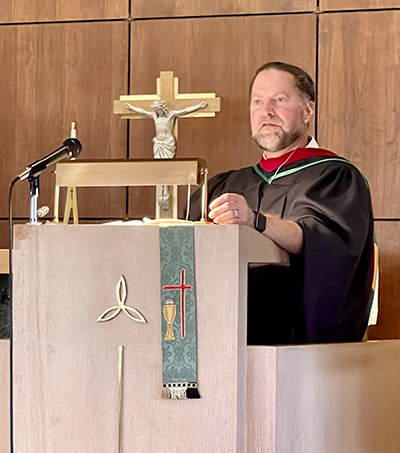
Serving as commencement speaker for the event was Rev. Dr. Albert B. Collver III, who helped to found the program during his tenure as General Secretary of the ILC. “As leaders of the church, the task in front of you can seem overwhelming,” he said to the graduates. “You may not feel up to the task. Politics within your church can seem daunting or even make you wonder if the church even exists in this place or if these people around me are Christians.”
“You have been placed where you are to serve your Lord and your church, to be His instruments to guide and lead His church in the way of the Gospel,” he continued. “Jesus has promised you that He will never leave you nor forsake you. But He also has not given you the task to save His church. Jesus is the Saviour of His people. Jesus is the Saviour of His Church.”
“We do not bear that burden,” Dr. Collver stressed. “He has not given us that burden to bear. Yet graciously our Lord Jesus still gives us the privilege to work and serve in His church where He uses us according to His own purpose. Yet the responsibility is His to protect and guard and preserve the church here on earth. He calls us to remain faithful to His confession, to study His Word, and to serve Him where He has called and placed us. There is great comfort in knowing that the Lord makes use of us though we are not responsible for the future of the church. The future of the church belongs solely to Jesus.”
As Dr. Masaki conducted the commencement, he also recounted the history of the program, discussed its Student Learning Outcomes, and expressed his gratitude to the LLDP Council, ILC, and other supporters of the program, especially Concordia Publishing House (CPH), Concordia Theological Seminary in Fort Wayne, Indiana (CTSFW), and The Lutheran Church—Missouri Synod (LCMS). The LLDP is a program of the ILC initiated in partnership with CPH, CTSFW, and the LCMS, and the ILC is grateful for the support of all its partners in this important endeavor.
Studies in the LLDP
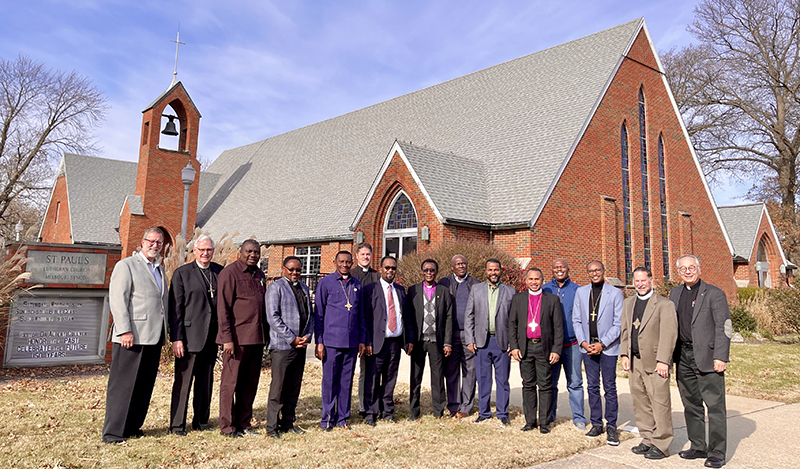
The LLDP is a graduate-level program of the ILC dedicated to equipping confessional Lutheran leaders around the world with the theological and practical knowledge necessary to effectively serve their church bodies.
The first cohort of students accepted into the program all hail from Africa, and began their studies in 2019. The program has seen participants gather for studies in Wittenberg, Germany; Fort Wayne, Indiana; and Troy, Illinois.
Courses and their instructors included:
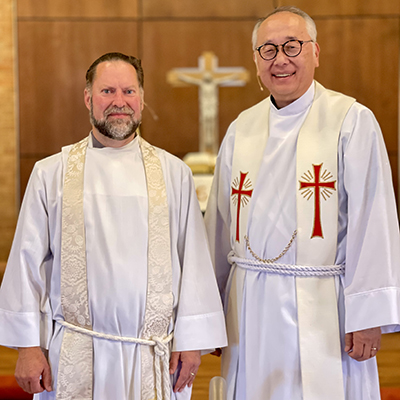
- Theology of the Lutheran Confessions – Rev. Dr. Naomichi Masaki (LLDP Director, CTSFW)
- World Lutheranism and the Ecumenical Movement – Rev. Dr. Albert Collver (ILC General Secretary)
- History of the Lutheran Church – Rev. Dr. Lawrence Rast (CTSFW)
- Lutheran Hermeneutics – Rev. Dr. Charles Gieschen (CTSFW)
- Ecclesial and Organizational Leadership – Archbishop Dr. Christian Ekong (LCN)
- Responding to Contemporary Issues and Neo-Pentecostalism – Rev. Prof. John Pless (CTSFW)
- The Lord’s Supper – Rev. Dr. Naomichi Masaki (LLDP Director, CTSFW)
- Liturgy and Lutheran Hymnody – Rev. Dr. Timothy Quill (ILC General Secretary)
- Strategic Planning and Task Management – Rev. Dr. Jeffrey Skopak (Grace Lutheran Church and School, Jacksonville, Florida)
- Budgeting and Financial Accountability – President Dr. Roger Paavola (LCMS, Mid-South District)
- The Office of the Holy Ministry – Rev. Dr. Naomichi Masaki
- Lutheran Mission, Ecclesiology, and Ecumenism – Rev. Dr. Albert Collver
The program has also seen the publication of three books through Concordia Publishing House during the period of the first cohort:
- Charles Schaum and Albert Collver, Breath of God, Yet Work of Man: Scripture, Philosophy, Dialogue, and Conflict.
- Christian O. Ekong, Strengthening Integrity and Accountability in Church Leadership.
- Victor C. Pfitzner, Led by the Spirit: How Charismatic is New Testament Christianity?
The LLDP plans to publish additional monographs on such topics as strategic planning and accountability in biblical stewardship.
LLDP Support
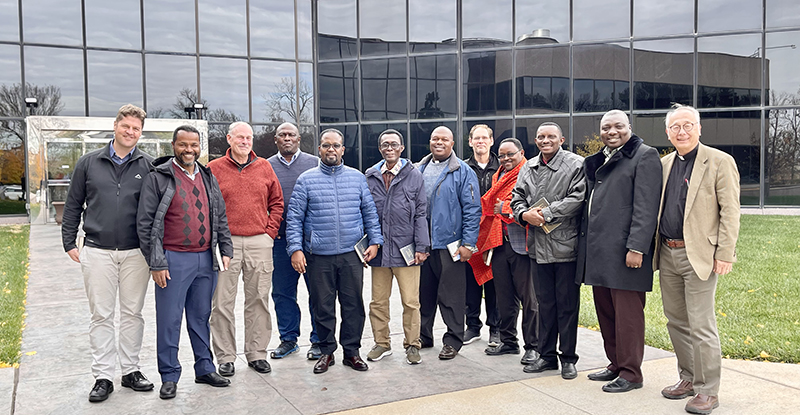
You can support the work of the Lutheran Leadership Development Program by making a donation online. You can also mail a donation by cheque to:
International Lutheran Council
PO Box 10149
Fort Wayne, Indiana 46850 USA
———————


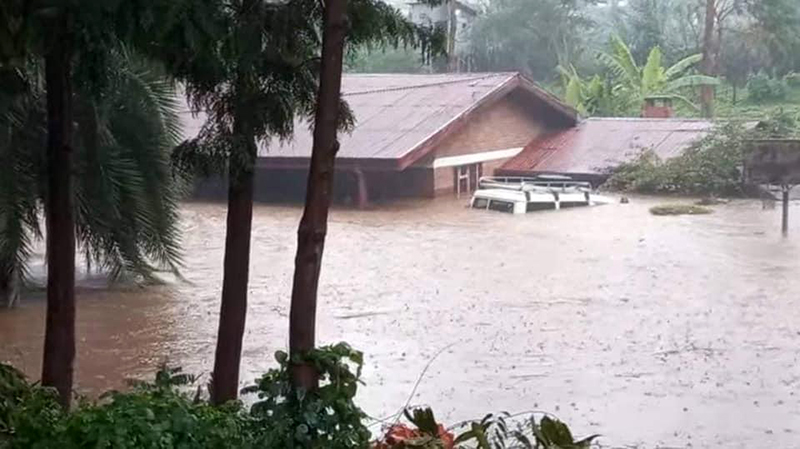
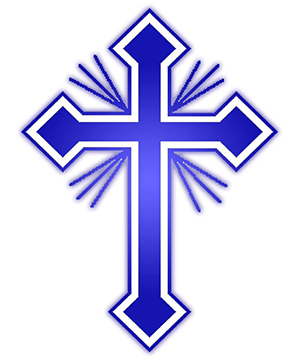 ETHIOPIA – The Ethiopian Evangelical Church Mekane Yesus (EECMY) held its 15th Council in Addis Ababa from August 20-24, 2019, during which time the church reaffirmed its commitment to cooperate only with churches that accept the biblical understanding of marriage. As a consequence of that decision, the EECMY has terminated its long-term partnership with the Presbyterian Church (USA).
ETHIOPIA – The Ethiopian Evangelical Church Mekane Yesus (EECMY) held its 15th Council in Addis Ababa from August 20-24, 2019, during which time the church reaffirmed its commitment to cooperate only with churches that accept the biblical understanding of marriage. As a consequence of that decision, the EECMY has terminated its long-term partnership with the Presbyterian Church (USA).